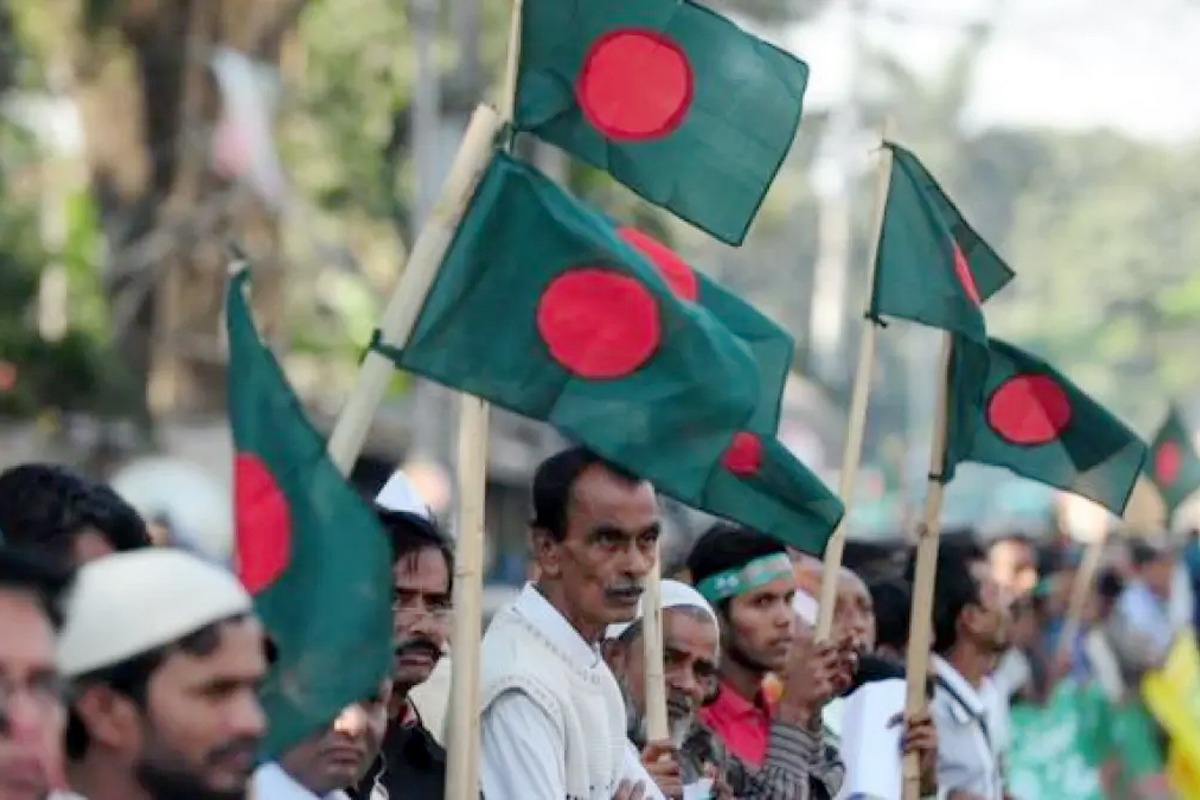NEW DELHI: Bangladesh’s next general election will be held on January 7, 2024, Chief Election Commissioner, Kazi Habibul Awa announced amidst the ongoing and intense protests from Opposition parties calling for the resignation of the prime minister.
Currently, Bangladesh is experiencing a surge of protests and controversies, both domestically and internationally. One of the prominent political parties in the country is advocating for a nationwide boycott of the upcoming polls.
The Bangladesh Nationalist Party (BNP) has been organising a series of strikes in recent months and has announced a national blockade and hartal scheduled for November 28 and 29.
The request for strikes arose in the midst of accusations of foreign involvement in Bangladesh’s political scene. Russia asserts that the US is fomenting unrest as the country approaches its scheduled polls on January 7, 2024.
What Are BNP’s Concerns?
The main concern of the party is for the incumbent Awami League government, led by the party president and Prime Minister Sheikh Hasina. BNP is demanding for the Awami League-led government to resign before the upcoming election. The BNP and its allies are also advocating for the forthcoming election to take place under a non-partisan administration to avoid potential attempts of manipulation of the election.
Russia’s Allegations On US Interference:
On November 22, during a routine briefing by the Foreign Ministry Spokeswoman Maria Zakharova, she accused the US of purportedly meddling in Bangladesh’s politics with the aim of securing backing for its “Indo-Pacific strategy.”
“At the end of October between US Ambassador to Bangladesh Peter Haas and a high-ranking representative of the local opposition. They reportedly discussed plans to organise mass anti-government protests in the country during the meeting.” Zakharova claimed.
Also Read: Rajasthan elections: 68.24% voter turnout by 5 PM, percentage likely to grow
In the briefing, Zakharvo also referred to the Nuland incident in 2014, during which a phone call between the then US Senior Under Secretary of State for Political Affairs, Victoria Nuland, and US Ambassador to Ukraine Geoffrey Pyatt was leaked on YouTube. In the phone call, the two were caught discussing who they thought should or shouldn’t be in the next Ukrainian government and their opinion of various Ukrainian political figures.
Zakharvo also alleged that the allies of the US were also a part of the interference in the upcoming elections in Bangladesh. “These assurances were purportedly made on behalf of the embassies of the United States, Britain, Australia and several other countries.”
US Response To The Allegations:
In response to the Russian accusations, the US restated that it neither supports nor favours any political party in Bangladesh.
A spokesperson from the US State Department in Washington stated, in reference to Zakharova’s intentional misrepresentation of US foreign policy and Ambassador Haas’s meetings, “We are aware of Zakharova’s deliberate mischaracterisation of US foreign policy and Ambassador Haas’s meetings”, as reported by PTI.
“To support that shared goal of free and fair elections conducted in a peaceful manner, US Embassy personnel engage and will continue to engage with the government, opposition, civil society, and other stakeholders to urge them to work together for the benefit of the Bangladeshi people,” the official remarked, further stating, “The United States does not support any political party in Bangladesh. Nor does the United States favour one political party over another.
The intense exchange between the two nations marks the most recent development in an ongoing series of disputes on the matter. In a previous instance in September, Russian Foreign Minister Sergei Lavrov, while visiting Bangladesh, had stated: “We can clearly see that the US and its allies are truly trying to promote their interests in the region by using the so-called Indo-Pacific strategy,” adding, “Their (US) goal is clearly both to counter China and to isolate Russia in this region.”









